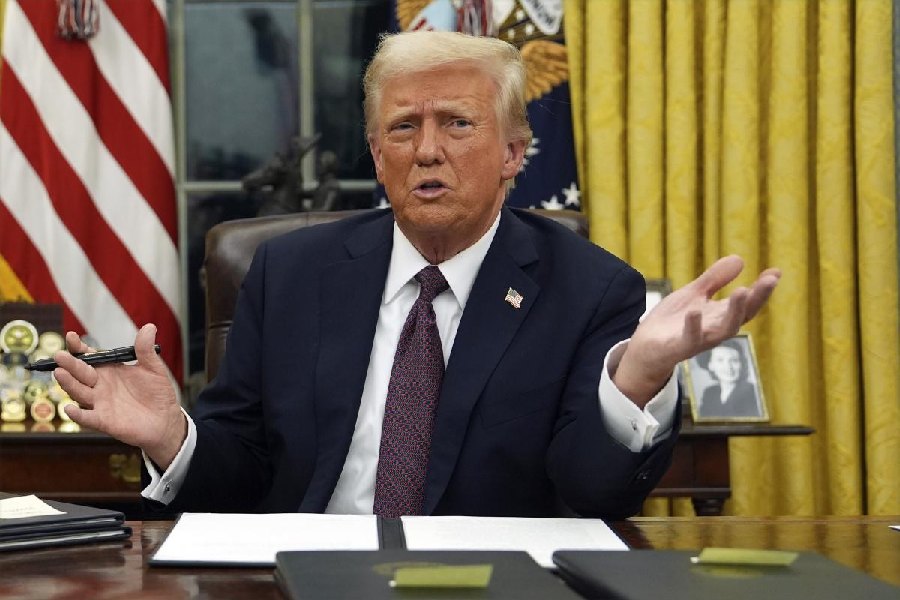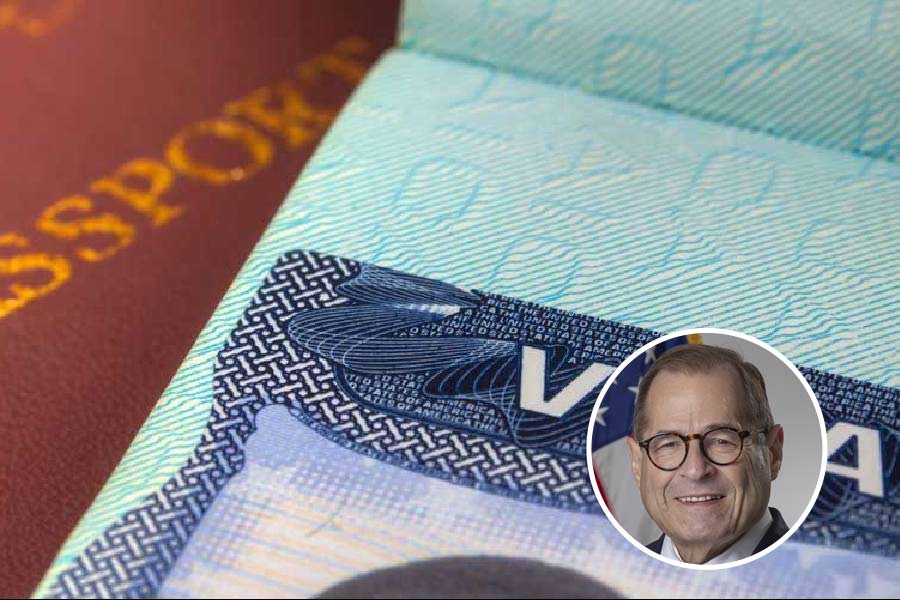Standing in the storied Canterbury Pulpit above the President on Tuesday, Bishop Mariann E. Budde was a little afraid.
The leader of the Episcopal Diocese of Washington, she had planned for months to preach on three elements of unity — dignity, honesty and humility. But just 24 hours earlier, she had watched President Trump proclaim his agenda from the inauguration stage, as conservative Christians anointed him with prayer.
He was no longer just campaigning — he was governing, she thought. His nascent presidency and flurry of executive orders had so far encountered little resistance. She felt called to add a fourth element to her sermon: A plea for mercy, on behalf of everyone who is scared by the ways he has threatened to wield his power.
“I had a feeling that there were people watching what was happening and wondering, Was anyone going to say anything?” she explained quietly in an interview on Tuesday night. “Was anyone going to say anything about the turn the country’s taking?”
“To plea for mercy is actually a very humbling thing to do,” Bishop Budde said. “I wasn’t demanding anything of him. I was pleading with him, like, can you see the humanity of these people? Can you acknowledge that there are people in this country are scared? … If not him, if not the President, could others?”
So, she took a breath, and spoke.
President Trump, seated 2 metres below and some 12 metres to her right, made eye contact. One representation of American Christianity began speaking to another, and the most powerful man in the world was arrested by the words of a silver-haired female bishop in the pulpit. Until he turned away.
For everyone watching, the vastness of Washington National Cathedral compressed, in one stunning moment, into a sudden intimacy. And with it, all the existential fights not simply of politics, but of morality itself. In a flash, the war over spiritual authority in America burst into a rare public showdown.
The Canterbury pulpit confronted the bully pulpit.
For nearly a decade, US Christianity has been torn apart in every possible way. Christians have fought over whether women should be allowed to preach. Over the place of gay people. The definition of marriage. The separation of church and state. Black Lives Matter. And at the heart of much of it has been Trump’s rise as the de facto head of the modern American church, and the rise of Right-wing Christian power declaring itself the one true voice of God.
Many of these fights have been siloed, rarely in dialogue. Christians of opposing perspectives almost never worship in the same sanctuary. They do not listen to one another’s sermons, or hear the other’s prayers. Mainline Protestants have wondered if their voice can have any measure of authority. At a moment when conservative Christians are poised to gain even more power through Trump’s second term, Bishop Budde tried something different.
Trump was unmoved. When the sermon ended, he exchanged a look with Vice-President J.D. Vance, a conservative Catholic, who shook his head in apparent disapproval.
On Wednesday morning, Trump retorted on his social media platform Truth Social, demanding an apology from the “so-called Bishop” and “Radical Left hard line Trump hater”.
“She brought her church into the World of politics in a very ungracious way,” Trump declared on Wednesday. “She was nasty in tone, and not compelling or smart.”
More than 14,000 people signed a petition thanking Bishop Budde within four hours. Episcopalians around Washington proudly posted online in gratitude.
New York Times News Service










